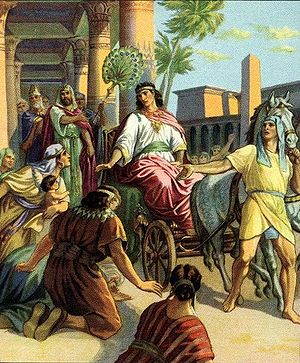I received from a good friend the following question:
I want to ask you about something, if you are healthy enough to answer. What does Psalm 82:6 mean? Of course, this is connected to John 10:34 as well. And on the same topic, who are the “sons of God” in Genesis and Job?
This topic may look like one topic, in a sense there is an element of being related, but in fact I would regard these as two separate issues. Let’s deal first with the issue of Psalm 82:6 and John 10:34.
Psalm 82 says the following:
82.1 God standeth in the congregation of the mighty, he judgeth among the gods
At first glance, this looks not dissimilar to other passages, as you say in the start of Job is a good example, where God is talking among the angelic host. But see what he says in the next verse:
82.2 How long will ye judge unjustly, and accept the persons of the wicked?
This puts an entirely different slant on it, as we see no cases of angels being given judgement of men. Instead, we are told that we shall judge angels (1 Cor 6.3). This certainly puts human judges on a higher line towards God almighty than the angels themselves, but surely that cannot mean any humans, this may be referring to the elect, or to people within the elect that had been given certain priviledges or responsibilities to represent God in the earth. Let’s see what further light we can find as we read on: Continue reading ““Ye are gods” – what does this mean?”

